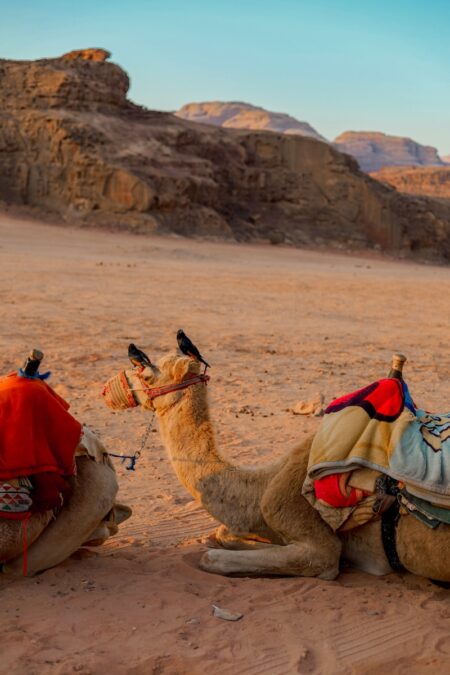Preserving History While Building the Future in UAE and Saudi Arabia
Integrating Cultural Heritage into Smart City Planning is essential for cities like Dubai and Riyadh as they develop into modern urban environments while respecting and preserving their rich historical legacies.
Combining Traditional Architecture with Modern Design
Urban planners in Riyadh and Dubai are faced with the challenge of balancing the need for modern infrastructure with the desire to preserve cultural identity. This is evident in projects that incorporate elements of traditional architecture into new developments. For example, the use of intricate latticework or “Mashrabiya” in contemporary building designs not only reflects regional aesthetic values but also provides practical benefits like reducing heat gain. These design choices help maintain a connection to the past while utilizing modern technology to meet today’s environmental and social needs.
Utilizing Technology to Protect Cultural Sites
In Dubai, advanced technologies such as AI and blockchain are being employed to protect and manage cultural heritage sites. AI-powered surveillance systems enhance security at archaeological sites, deterring vandalism and theft. Meanwhile, blockchain technology is used to track and record all changes in historical sites, ensuring that any restorations or alterations are carefully monitored and recorded for future generations. This use of cutting-edge technology supports the city’s dual goals of preservation and innovation.
Engaging Communities in Urban Development
Community engagement is a key component of successful urban planning when it involves cultural heritage. In Saudi Arabia, initiatives are taken to involve local communities in the planning process, ensuring that development projects reflect the cultural values and historical significance of the area. This approach not only fosters a sense of ownership among residents but also ensures that developments are culturally sensitive and beneficial for the community. Engaging community leaders and residents early in the planning process helps to align new projects with traditional values and enhances public support for ongoing development efforts.
Sustainable Tourism and Economic Growth
Integrating cultural heritage in smart city planning can significantly boost tourism and economic growth. By highlighting historical landmarks and cultural festivals, cities like Riyadh and Dubai attract tourists who are eager to experience the unique culture of the region. This not only generates revenue but also promotes local crafts and traditions, providing a sustainable source of income for many communities. Additionally, the integration of traditional elements into modern designs makes cities more attractive to international investors looking for dynamic yet culturally enriched urban environments.
Innovative Use of Space in Historical Areas
Preserving historical neighborhoods while providing for contemporary needs is a sophisticated challenge. Urban planners in UAE and Saudi Arabia use innovative strategies to integrate modern infrastructure into historic areas without disrupting their charm. For instance, underground parking solutions and discreet transportation hubs are designed to maintain the visual aesthetic of old towns while improving accessibility and functionality. This careful planning ensures that the historical value of these areas is respected while adapting to the needs of a growing urban population.
Policy Frameworks Supporting Cultural Integration
Supportive policy frameworks are crucial for ensuring that cultural heritage is considered in smart city planning. In both Dubai and Riyadh, regulations mandate the preservation of certain architectural styles and the integration of cultural elements into new constructions. These policies are supported by substantial funding for cultural preservation projects and research into traditional building techniques that can be adapted for modern use. By institutionalizing respect for cultural heritage, these cities set a precedent for other urban areas around the world to follow.
Role of Digital Archives in Preserving Cultural Heritage
Digital archiving is another pivotal element in preserving the cultural heritage within smart city frameworks. In cities like Dubai, where rapid urbanization is a constant, digital archives provide a means to safeguard intangible cultural elements such as dialects, music, and rituals. These archives use advanced technologies like high-resolution imaging and cloud storage to ensure that future generations have access to their cultural history. This digital preservation is essential not only for maintaining cultural identity but also for fostering an understanding of the region’s rich history among new residents and visitors.
Enhancing Educational Outreach Through Technology
Educational outreach is critical for promoting the values of cultural heritage in urban development. Smart cities like Riyadh are utilizing technology to create interactive learning experiences that educate the public about the historical significance of their surroundings. Virtual reality (VR) tours of historical sites and augmented reality (AR) experiences at museums are examples of how technology can enhance understanding and appreciation of cultural heritage. By integrating these technologies into education, cities can ensure that their inhabitants recognize and value the historical and cultural dimensions of their environment.
Challenges in Balancing Modernization with Preservation
Despite the many initiatives aimed at integrating cultural heritage into urban development, challenges still persist. Balancing modernization needs with preservation efforts often leads to complex decision-making scenarios where trade-offs are inevitable. In Dubai, for instance, the expansion of infrastructure like public transportation networks must be carefully planned to avoid disrupting historical sites. Similarly, in Riyadh, the push for greener building technologies must be weighed against the potential impact on traditional architectures and landscapes. These challenges require innovative solutions and thoughtful leadership to navigate effectively, ensuring that smart city development is both progressive and respectful of cultural legacies.
#CulturalHeritage #SmartCityPlanning #UrbanDevelopment #SaudiArabia #UAE #Riyadh #Dubai #SustainableTourism #CommunityEngagement #InnovativeUrbanPlanning #TechnologyInCulture









